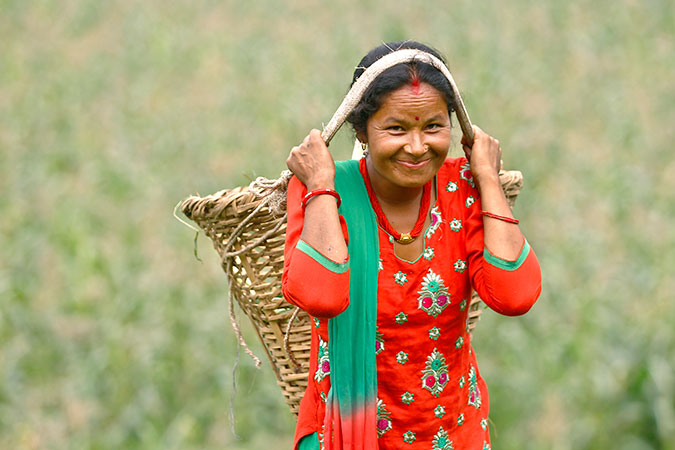Women farmers of Nepal take charge of their lives and livelihoods
A joint programme by UN Women and partners in Nepal has not only improved women farmers’ agricultural production and income, but also changed gender-discriminatory attitudes of their male counterparts.Date:
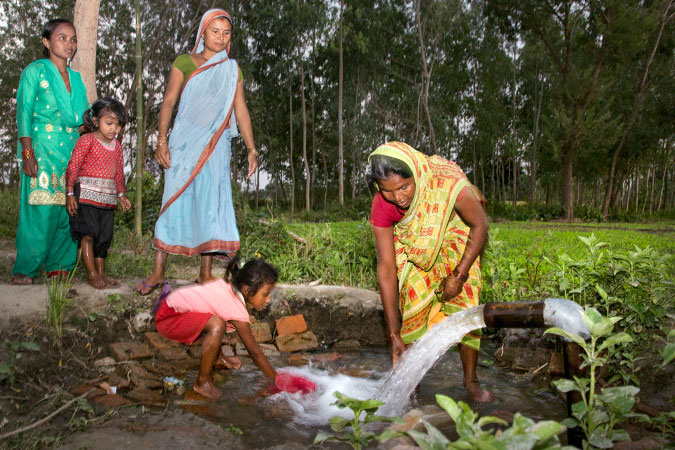
Up until last summer, Chanda Devi, like the rest of the women farmers of Paltuwa village in the Sarlahi district in Nepal, would walk for hours every day under the scorching sun, to bring water from the river to cook and feed the cattle. Then she would head out to work the farm alongside men farmers, and then come home for her second shift or cooking for the family, and feeding the cattle.
Today the situation is vastly different. With support from the Rural Women's Economic Empowerment Joint Programme, implemented by UN Women, Food and Agriculture Organization, International Fund for Agricultural Development and World Food Programme, and funded by a consortium of donors focusing on economic empowerment, an irrigation system was built to bring fresh water closer to their homes and to water the crops. That has changed their daily lives.
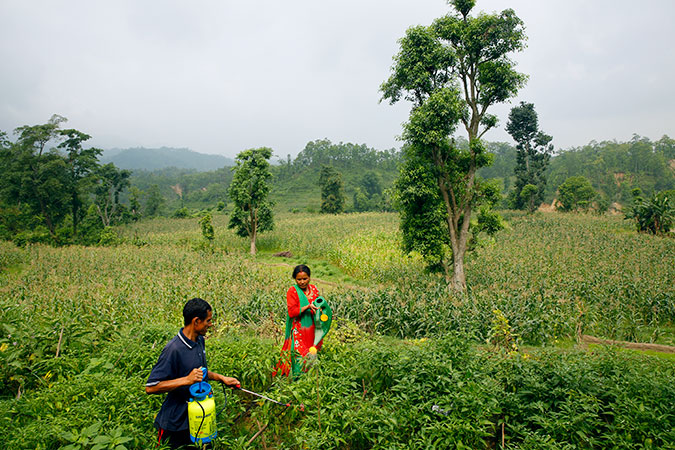
“Before, there was a severe scarcity of water in our village. The source was far away, and our little buckets could not carry enough to water our crops. As a result, we suffered huge losses during every crop cycle,” recalls Chanda, a mother of three, who was one of the 175 rural women farmers who worked on the irrigation programme as a Site Coordinator.
Rural women form a large proportion of the agricultural labour force in Nepal and play a vital yet unrecognized role in agriculture that sustains nearly 80 percent of the population. Perceived mainly as care givers, their work in farming is largely undervalued. Women farmers are often paid less than men for the same work, and lack access to resources and markets due to discriminatory attitudes. However, since the launch of the Joint Programme, a new narrative is unfolding across the villages of Rauthat and Sindhuli districts.
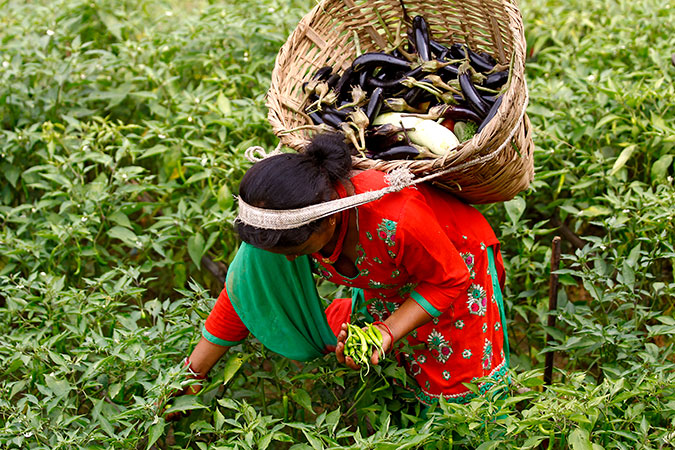
As more Nepalese men migrate abroad to find work, an increasing number of rural women are taking up farming. By improving women’s agricultural production, access to markets and leadership skills, the programme has increased their income, food security and independence.
Chandra Kala Thapa, one of many smallholder women farmers from Ranichuri village in Sindhuli district, was barely able to produce enough grains to feed her family. With support from the Joint Programme, she converted her field from grain production to high-value vegetables. “Now the prices are good and the money comes on time. This was not the case when I used to cultivate grains instead of high-value vegetables,” she says.
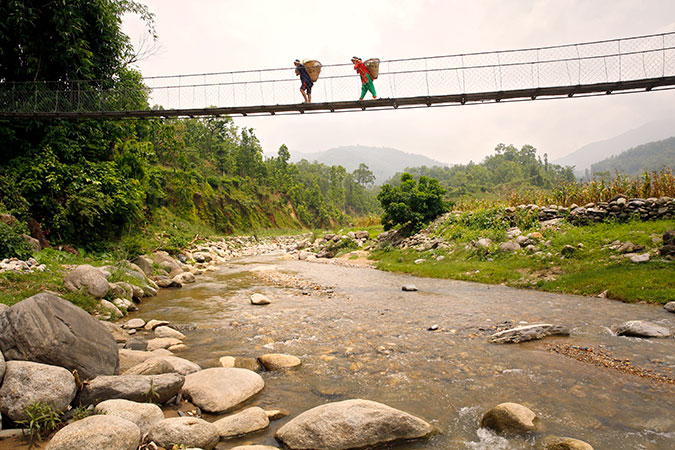
The programme also employed rural women in construction projects to improve agriculture. Chandra Kala Thapa was among 130 rural women to earn an average wage of USD 120 for the construction of the Community Agriculture Extension Service Centre building. The Service Centre, which provides agricultural services to the entire village, is now fully owned and managed by the community, mainly under the leadership of women farmers.
"Women are central to the development of rural areas and to national economies. But they face more obstacles than men in gaining access to public services, social protection, decent employment opportunities, markets and other institutions," says Mio Yokota, Head of the Women's Economic Empowerment Unit at UN Women Nepal. "The programme has established women-led support groups to increase women’s engagement in agriculture and community activities,” she adds.
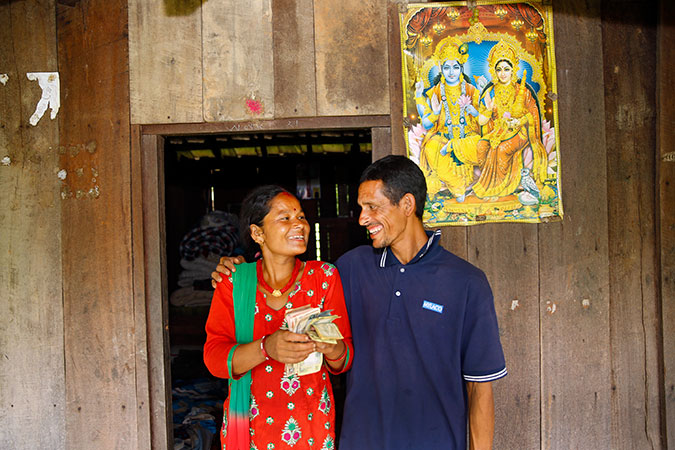
The programme is currently supporting 3,400 rural women and their families in 30 Village Development Committees of the three districts of Sarlahi, Sindhuli, and Rautahat.
As more women farmers take up leadership roles, the programme is also helping to break gender stereotypes and change the cultural attitudes of their male counterparts.
As Chanda Devi notes, “Before, we were not allowed to step out of our homes for even a short period of time. But these days, the men are supporting and even encouraging us to spend quality time outside, earn a livelihood and become independent. It is very positive and I am especially happy for my daughter.”
Chanda Devi often talks to primary school children about women’s empowerment, so that the change that has been sparked becomes the new normal for the next generation.
